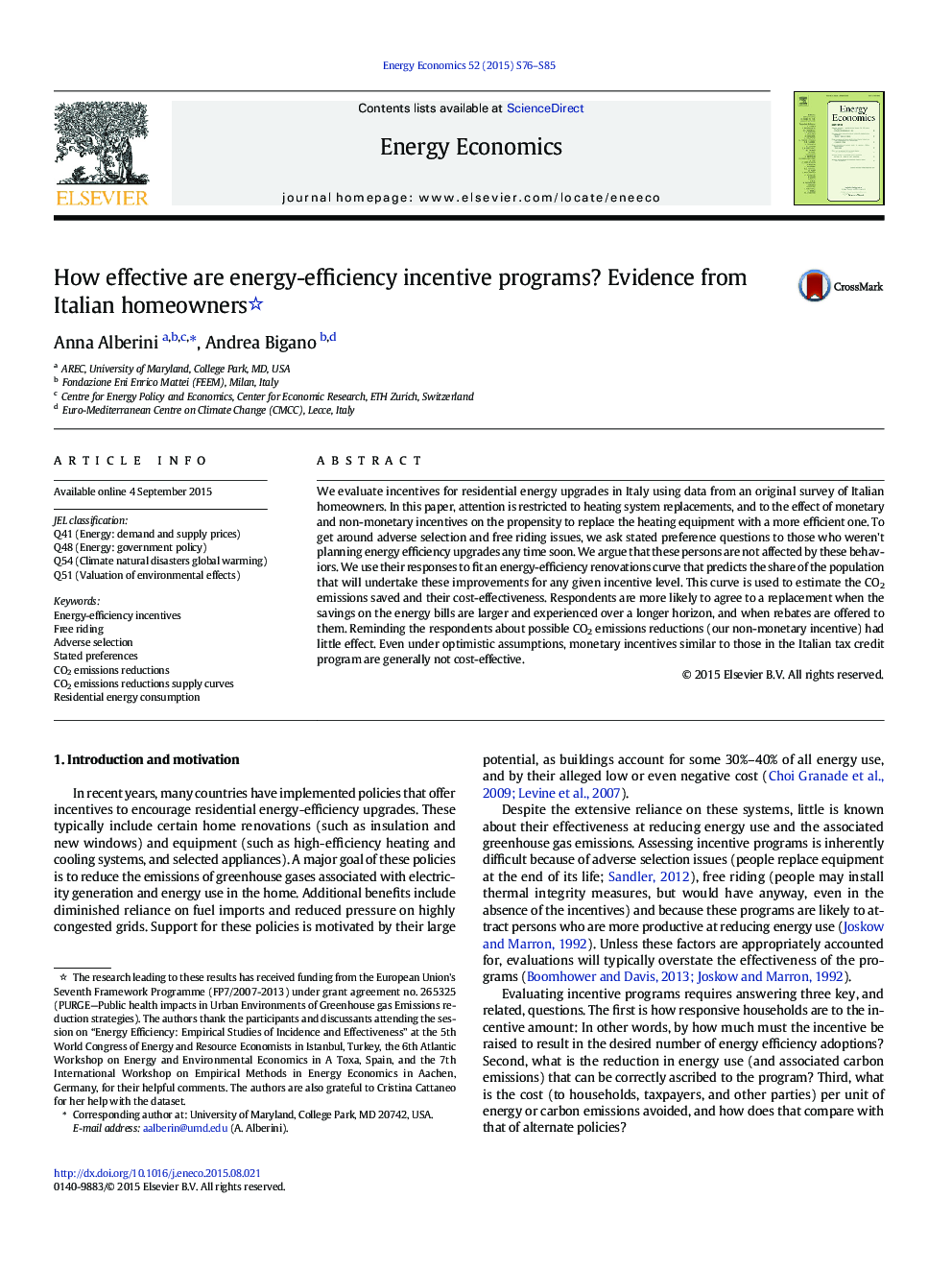| کد مقاله | کد نشریه | سال انتشار | مقاله انگلیسی | نسخه تمام متن |
|---|---|---|---|---|
| 5064203 | 1372282 | 2015 | 10 صفحه PDF | دانلود رایگان |
We evaluate incentives for residential energy upgrades in Italy using data from an original survey of Italian homeowners. In this paper, attention is restricted to heating system replacements, and to the effect of monetary and non-monetary incentives on the propensity to replace the heating equipment with a more efficient one. To get around adverse selection and free riding issues, we ask stated preference questions to those who weren't planning energy efficiency upgrades any time soon. We argue that these persons are not affected by these behaviors. We use their responses to fit an energy-efficiency renovations curve that predicts the share of the population that will undertake these improvements for any given incentive level. This curve is used to estimate the CO2 emissions saved and their cost-effectiveness. Respondents are more likely to agree to a replacement when the savings on the energy bills are larger and experienced over a longer horizon, and when rebates are offered to them. Reminding the respondents about possible CO2 emissions reductions (our non-monetary incentive) had little effect. Even under optimistic assumptions, monetary incentives similar to those in the Italian tax credit program are generally not cost-effective.
Journal: Energy Economics - Volume 52, Supplement 1, December 2015, Pages S76-S85
